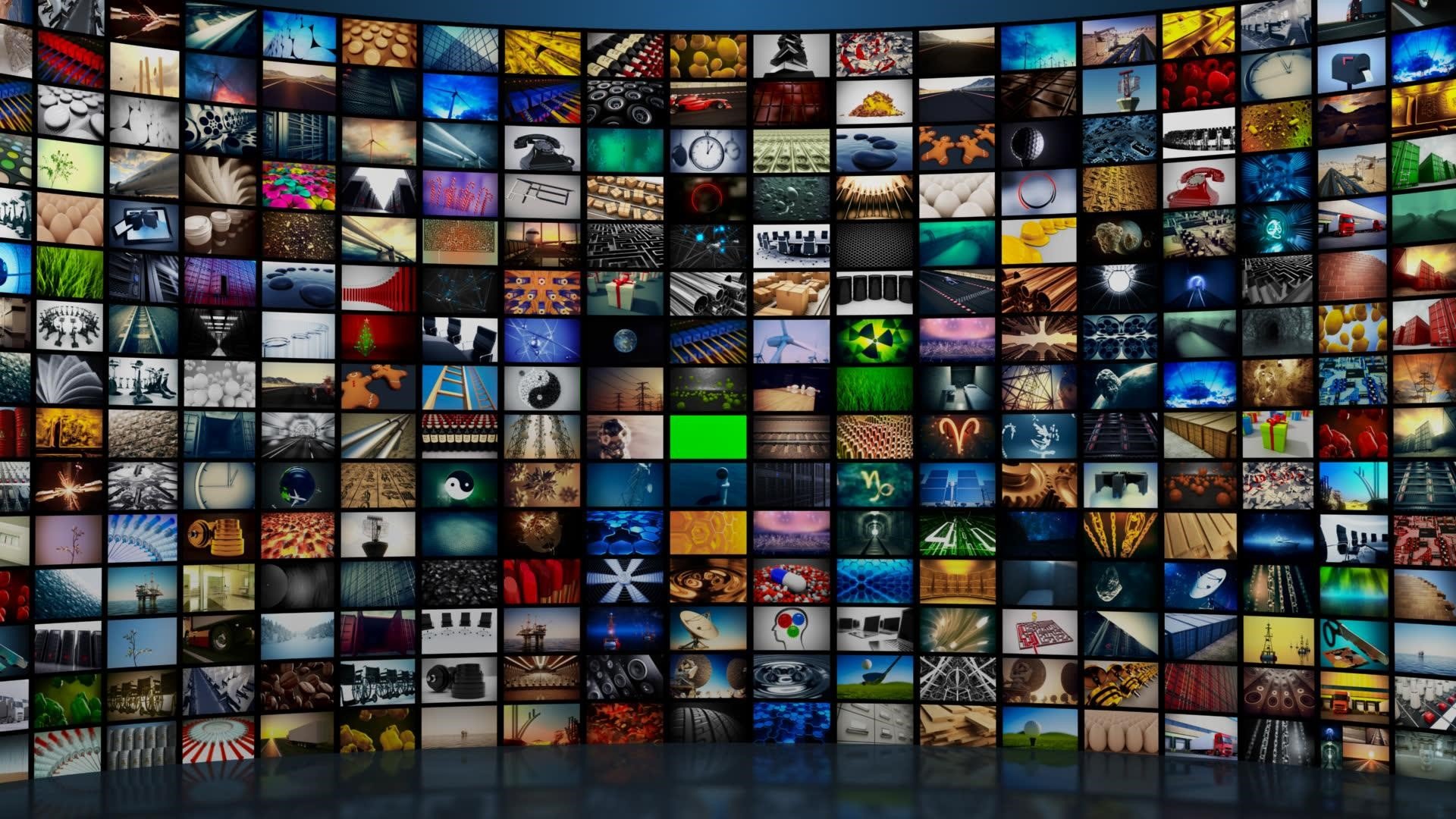IPTV-- Changing How You View TV
IPTV-- Changing How You View TV
Blog Article
IPTV Explained: Why It's Revolutionizing the Way We See Television
The appearance of Net Protocol Television (IPTV) represents a critical shift in just how target markets engage with content. By leveraging internet connectivity, IPTV goes beyond standard broadcasting restrictions, providing viewers a adjustable and dynamic media experience. This technology not just supplies access to a wealth of shows on-demand however likewise introduces interactive features that accommodate modern-day seeing preferences. As we check out the complexities of IPTV, it becomes obvious that this development is not merely a fad; it positions significant ramifications for the future of television intake and the landscape of digital home entertainment.
What Is IPTV?
IPTV, or Internet Protocol Tv, is an approach of delivering tv web content online as opposed to via conventional satellite or cable television layouts. This innovative technique makes use of internet procedure networks to send video clip data, permitting audiences to access a wide variety of programs straight using their internet connection. Unlike traditional broadcasting, which counts on radio waves or cable facilities, IPTV allows the streaming of web content in an extra user-centric and flexible manner.
One of the vital benefits of IPTV is its capacity to provide on-demand access to a large library of shows, motion pictures, and live programs. Clients can enjoy customized seeing experiences, including the choice to stop briefly, rewind, or record material. In addition, IPTV services usually include interactive features, such as video as needed, catch-up tv, and the capacity to accessibility numerous gadgets all at once.

Just How IPTV Works

The process starts with web content aggregation, where various television networks and programs are assembled onto a central server. From this server, the material is inscribed right into electronic formats appropriate for streaming. When an individual picks a program, the IPTV solution obtains the ideal information packets from the server and transmits them to the individual's gadget.
IPTV typically functions with set-top boxes or wise TVs, which decode the incoming data and make the video clip for checking out. The modern technology utilizes adaptive bitrate streaming to maximize video clip quality based on the user's internet rate, ensuring a smooth checking out experience. Additionally, IPTV frequently includes interactive functions such as time out, rewind, and gain access to to an electronic collection, enhancing customer involvement. In general, IPTV stands for an innovative combination of technology that changes standard television watching right into a much more tailored and dynamic experience.
Advantages of IPTV
As viewers increasingly seek adaptability and modification in their entertainment selections, IPTV uses a series of benefits that deal with these needs. Among the most significant benefits is the capacity to gain access to web content on different gadgets, including smart devices, tablet computers, smart Televisions, and computer systems - Iptv. This multi-device compatibility enables users to appreciate their favorite programs and motion pictures anytime, anywhere, continue reading this improving their watching experience
Furthermore, IPTV supplies a considerable library of on-demand material, enabling customers to pick what to see, when to watch it, and how to enjoy it. This contrasts with standard broadcasting methods, where customers are typically constrained by taken care of schedules. In addition, IPTV services often provide customization features, such as customized recommendations based upon viewing routines, allowing individuals to uncover new content fit to their choices.
Additionally, IPTV commonly includes sophisticated attributes like cloud DVR abilities, making it possible for users to tape and store programs for later watching. Boosted interactivity, such as the ability to stop briefly, rewind, or fast-forward web content, further enhances the checking out experience. Iptv. Jointly, these benefits placement IPTV as a compelling alternative to conventional tv, fulfilling the advancing assumptions of today's target markets
Contrast With Traditional TV
Typical television and IPTV existing unique viewing experiences, each satisfying various target market choices. Traditional TV depends on cable television, terrestrial, or satellite signals, supplying a repaired routine for broadcasting. Customers are usually bound to specific time slots to watch their favorite shows, which can be troublesome in today's fast-paced environment.
In contrast, IPTV delivers content via the internet, allowing users to stream programs and flicks on-demand. This flexibility allows viewers to view material at their benefit, getting rid of the constraints of a predetermined timetable. Additionally, IPTV services frequently offer access to a broader selection of networks and material, including global shows and particular niche styles that traditional wire bundles may not offer.
In addition, the interactivity of IPTV improves user engagement, permitting for attributes such as pause, rewind, and record capacities that standard TV does not have. Individuals can also access additional web content, including thorough program guides and viewer rankings, enriching the total viewing experience.
Inevitably, while standard tv stays a staple for many customers, IPTV's versatility and wealth of web content make it a progressively preferred alternative, interesting those seeking even more control over their viewing routines.
Future of IPTV
The future of IPTV shows up promising, driven by advancements in innovation and shifting customer choices. As broadband infrastructure remains to improve worldwide, IPTV solutions are poised to supply higher-quality video clip web content with marginal buffering and improved customer experiences. This progression is enhanced by the spreading of wise tools, enabling viewers to access IPTV content on mobile phones, tablet computers, and clever Televisions, hence enhancing comfort and flexibility.
Additionally, the combination of fabricated knowledge and machine knowing right into IPTV systems is expected to reinvent material read distribution. Personalized recommendations based on seeing routines will improve individual involvement, making it less complicated for subscribers to discover relevant content. Additionally, the incorporation of augmented reality (AR) and digital fact (VR) technologies holds the potential to create immersive viewing experiences that traditional tv can not match.
The surge of subscription-based versions and ad-supported streaming solutions suggests a shift in exactly how consumers agree to pay for content, better sustaining IPTV's development. As more consumers look for adaptability and personalization in their seeing practices, IPTV is likely to become a leading force in the enjoyment landscape, reshaping how web content is created, distributed, and consumed in the coming years.
Conclusion
In verdict, IPTV stands for a transformative development in television intake, using audiences extraordinary versatility and control over their seeing experiences. Its capacity for on-demand accessibility, individualized content, and interactive attributes differentiates it from traditional broadcasting approaches. As innovation remains to progress, the potential for IPTV to more influence media consumption patterns and improve the home entertainment landscape continues to be considerable. This shift highlights the importance of adjusting to arising innovations in an increasingly electronic world.
The introduction of Net Protocol Television (IPTV) indicates a pivotal shift in just how target markets engage with content.IPTV, or Web Protocol Television, is an approach of linked here supplying television content over the web instead than via traditional satellite or cable television styles.Making use of a network of internet procedures, IPTV provides tv web content via a series of well-defined processes. Furthermore, IPTV services often use personalization features, such as tailored referrals based on seeing practices, enabling individuals to uncover new content fit to their preferences.
In addition, IPTV solutions usually provide access to a broader selection of channels and web content, consisting of global shows and particular niche styles that typical wire plans might not use.
Report this page